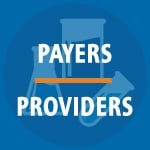
This blog post is authored by Jeffrey Francer (PhRMA) and Deborah Shelton (BIO).
We are in an era of data-driven medicine. Patients, caregivers, health care professionals and insurers want more information about the safety, effectiveness and value of treatments – and rightly so. But federal regulations governing information-sharing about medicines have not kept up with this new reality.
As the wealth of available information about medicines continues to evolve, we must define new and clearer regulatory standards to allow biopharmaceutical companies to communicate about the safe and effective use of medicines with other parties in the health care system. Greater sharing of information between biopharmaceutical companies, payers and health care professionals can benefit patient care and insurance coverage by ensuring more patients receive the best treatment for them. Today, PhRMA and BIO are endorsing new Principles on Responsible Sharing of Truthful and Non-Misleading Information about Medicines with Health Care Professionals and Payers intended to guide the establishment of responsible, science-based parameters for accurate and trusted information-sharing under a modernized regulatory framework.
Following are three key concepts of the PhRMA and BIO principles:
- Commitment to Science-Based Communication: There are many types of data and analyses that are scientifically and statistically-sound, and which can help improve patient care. We must increase access to these types of communications.
- Commitment to Provide Appropriate Context about Data: Communications should clearly disclose appropriate contextual information about data that are presented, including limitations on statistical methods and study design, to ensure that health care professionals and payers are clearly informed about emerging data on the safety, effectiveness and value of medicines.
- Commitment to Tailoring Communications to the Intended Audience: Communications should keep the sophistication of the intended audience in mind to ensure that new information is clearly communicated and incorporated into existing knowledge and expertise.
Stakeholders across the health care industry are interested in improving data-driven information sharing. The Network for Excellence in Health Innovation (NEHI) recently released an issue brief describing the conclusion of a multi-stakeholder conference about how real-world evidence can be used appropriately to accelerate innovation and transform patient care. Additionally, a “diverse group of health care stakeholders participating in an Academy of Managed Care Pharmacy (AMCP) forum reached agreement on a wide range of recommendations to make it easier for pharmaceutical companies to share pharmacoeconomic information with health care organizations that make coverage decisions.”
 The regulatory framework needs to be modernized to reflect the rapidly evolving science and increased pace of the development and understanding of innovative medicines. Many types of data and analyses can benefit patient care, including rare disease populations, patients who participate in large registries and all of us who expect that our health care professionals and insurance companies will have access to timely, high-quality information that is accurately presented. Removing current regulatory barriers and clarifying the ability of companies to share truthful and non-misleading information about medicines are essential to our collective ability to realize the full potential of 21st century medicines and, ultimately, help ensure that patients are able to get the right medicines at the right time for them.
The regulatory framework needs to be modernized to reflect the rapidly evolving science and increased pace of the development and understanding of innovative medicines. Many types of data and analyses can benefit patient care, including rare disease populations, patients who participate in large registries and all of us who expect that our health care professionals and insurance companies will have access to timely, high-quality information that is accurately presented. Removing current regulatory barriers and clarifying the ability of companies to share truthful and non-misleading information about medicines are essential to our collective ability to realize the full potential of 21st century medicines and, ultimately, help ensure that patients are able to get the right medicines at the right time for them.
Learn more about communications with health care professionals and payers here.




 The regulatory framework needs to be modernized to reflect the rapidly evolving science and increased pace of the development and understanding of innovative medicines. Many types of data and analyses can benefit patient care, including rare disease populations, patients who participate in large registries and all of us who expect that our health care professionals and insurance companies will have access to timely, high-quality information that is accurately presented. Removing current regulatory barriers and clarifying the ability of companies to share truthful and non-misleading information about medicines are essential to our collective ability to realize the full potential of 21st century medicines and, ultimately, help ensure that patients are able to get the right medicines at the right time for them.
The regulatory framework needs to be modernized to reflect the rapidly evolving science and increased pace of the development and understanding of innovative medicines. Many types of data and analyses can benefit patient care, including rare disease populations, patients who participate in large registries and all of us who expect that our health care professionals and insurance companies will have access to timely, high-quality information that is accurately presented. Removing current regulatory barriers and clarifying the ability of companies to share truthful and non-misleading information about medicines are essential to our collective ability to realize the full potential of 21st century medicines and, ultimately, help ensure that patients are able to get the right medicines at the right time for them.

